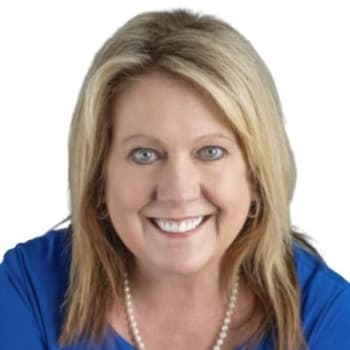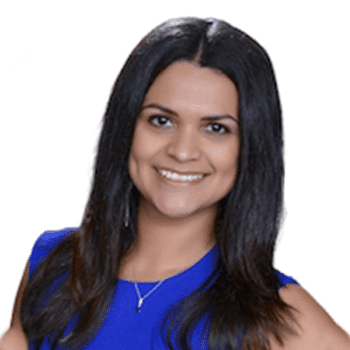Learn more about levels of care, therapeutic modalities and other treatment options available at Orlando Recovery Center.
Recovery from drug or alcohol addiction begins with high-quality care. Located in Central Florida, Orlando Recovery Center offers the latest evidence-based approaches for substance use and co-occurring mental health and eating disorders. Multiple levels of care, comprehensive therapeutic methods and post-treatment follow-up set the stage for long-term healing and recovery.
Levels of Care
People living with addiction and mental health often benefit most from comprehensive care. To help promote long-term healing, Orlando Recovery Center offers a full continuum of addiction treatment including medical detox, residential, partial hospitalization, intensive outpatient and outpatient treatment.
Medical Detox
Often the first step in most recovery programs, medical detox allows individuals to undergo drug and alcohol withdrawal under the care of medical professionals. This safe and supportive clinical setting can help clients stay committed to recovery goals and alleviate some of the discomfort of withdrawal with medications. However, it’s important for clients to keep in mind that medications are only used when clinically cleared by a medical professional.
Residential
Once medical detox is complete, most patients step down to residential treatment. Also referred to as inpatient, clients in residential care live at Orlando Recovery Center full time. This around-the-clock supervision provides accountability and support in the early stages of recovery. During the day, clients participate in reflective individual and group therapy and return to comfortable, on-site living quarters at night.
Partial Hospitalization
A step between intensive care and more flexible intensive outpatient and outpatient treatments, partial hospitalization allows clients to gradually gain confidence in their recovery. Fewer clinical hours allow time for recreational therapies while continuing to provide an opportunity to practice new coping skills in a supportive environment.
Intensive Outpatient
At Orlando Recovery Center, individuals in this stage of care may transition to off-site residency in a supportive home or sober living environment. Regardless, clients in this level of care continue to participate in group and individual therapy on a part-time basis, where they gain insight and build skills needed for long-term recovery.
Outpatient
During outpatient care, clients live off-site at home or in sober living housing and undergo treatment at Orlando Recovery Center’s Maitland outpatient center on a part-time basis. In between therapy sessions, clients gradually return to familial and professional responsibilities. Treatment allows for continued support and accountability in the face of new challenges. Before care is over, counselors work with each client to find local therapy, groups and physicians for ongoing support once treatment at Orlando Recovery Center is complete.
Treatment Therapies
Abstaining from drugs or alcohol isn’t enough to combat addiction. For treatment to be effective and recovery to be long-lasting, clients should understand the origins of their addictive behaviors, address symptoms of co-occurring mental health conditions and learn new coping skills. Through individual, group, family, recreational and holistic therapy, clients can arrive at new insights and build healing habits.
Individual Therapy
During individual therapy, clients work closely with counselors in private sessions to address underlying issues and create achievable recovery goals that promote mental and physical wellness. Sessions are held once a week for most levels of care and may use a variety of therapeutic methods depending on the client’s unique needs.
Individual therapeutic modalities may include:
- Cognitive Behavioral Therapy: Teaches clients how to identify self-defeating thought patterns and emotions that drive harmful behaviors
- Dialectical Behavioral Therapy: Helps individuals build skills in forming relationships, solving problems, communicating, practicing mindfulness and regulating emotions
- EMDR Therapy: In cases of trauma, this therapy allows clients to process their experiences and move past them
- Moral Reconation Therapy: Focuses on the moral and social consequences of substance use to decrease the likelihood of relapse
- Accelerated Resolution Therapy: Aims to reduce the effects of trauma or other significant psychological stressors
Group Therapy
Group therapy at Orlando Recovery Center takes place several times a day. Led by a trained mental health professional, clients in group therapy open up about their experiences, hear about the struggles of others and foster a sense of community and support. Group therapy sessions can also serve as educational opportunities to learn more about various topics, including handling relapse, managing triggering situations, living with grief and trauma, coping with mental illness and understanding codependency. Gender-specific groups at Orlando Recovery Center allow clients to grow and share their struggles while reducing possible distractions.
Clients at Orlando Recovery Center may participate in several different group therapy formats, including:
- 12-Step programming
- SMART Recovery
- Experiential groups
- Skills groups
Family Support & Therapy
Addiction isn’t always an individual issue; it also impacts parents, children, brothers, sisters and other loved ones. Substance use problems can make healthy communication difficult, which may cause additional distance from family members. Through family therapy, clients and their loved ones can better understand challenging family dynamics, learn how to resolve conflict and begin to build healthy, loving relationships. Because family tends to be a crucial source of support and encouragement after treatment, most levels of care at Orlando Recovery Center involve weekly family therapy sessions.
Recreational & Holistic Therapies
Recovery isn’t just about resolving past issues and abstaining from substance use. For recovery to be long-term, it’s important to build new habits and find healthy outlets for boredom, stress relief and socialization. Recreational and holistic therapies support physical and mental health by introducing healing activities in a supportive environment.
Recreational and holistic therapies offered at Orlando Recovery Center may include:
- Yoga
- Canine therapy
- Art therapy
Medication-Assisted Treatment
While many rehab centers have relied on abstinence-only approaches to recovery, medication-assisted treatment (MAT) is increasing in popularity as an evidence-based, effective alternative. MAT can be used to aid in treatment for alcohol or opioid addiction by reducing the effects of cravings and decreasing withdrawal symptoms. While MAT is offered at Orlando Recovery Center, the treatment is only administered when deemed clinically safe by a medical professional.
Aftercare & Support
To help promote long-term recovery, Orlando Recovery Center offers aftercare services to all clients.
Aftercare from Orlando Recovery Center includes:
- Alumni Program: Our alumni coordinator contacts clients periodically to check up on progress and ensure continued commitment to recovery
- Recovery Groups and Providers: Clinicians connect clients to local health care providers and support groups
Recovery is closer than you think. If you or someone you love lives with addiction, Orlando Recovery Center can help. Representatives are available to answer your questions, address concerns and begin the enrollment process. Call today for more information or to begin treatment.
Clinical Staff & Leadership Team
Addiction is complex — that’s why Orlando Recovery Center employs compassionate experts in the fields of mental health and behavioral science to address it. During treatment, clients at Orlando Recovery Center receive care from a dedicated, multidisciplinary group of physicians, clinicians and addiction specialists. Care provided by these professionals is led by a leadership team of experts committed to creating treatment plans that work for each individual.

The Recovery Village aims to improve the quality of life for people struggling with substance use or mental health disorder with fact-based content about the nature of behavioral health conditions, treatment options and their related outcomes. We publish material that is researched, cited, edited and reviewed by licensed medical professionals. The information we provide is not intended to be a substitute for professional medical advice, diagnosis or treatment. It should not be used in place of the advice of your physician or other qualified healthcare providers.
